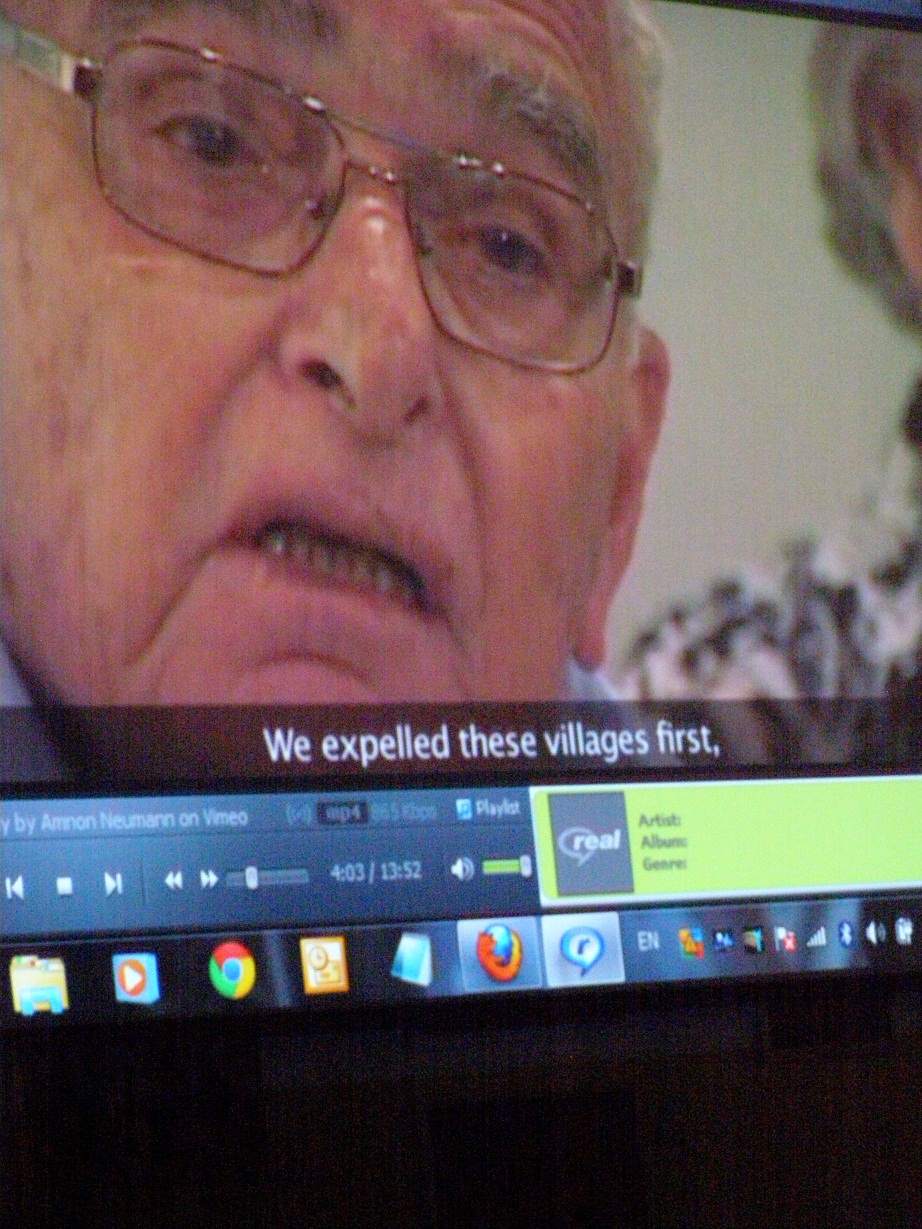At the panel on January 2nd 2012 participated Uri Heitner, Eitan Bronstein, Moti Golani, Yoel Zilberman. Moderated Dudu Palma.
Following the event Uri Heitner wrote something we prefer not repeting. From Eitan Bronstein's respond you can get his main idea:
Disgust, contempt, no respect, vicious lie, Satan. That’s what Uri Heitner feels toward me. I'm afraid that well expresses the response of some Israelis to the growing acknowledgment of what the establishment of a Jewish state involved. As more and more Israelis realize that the establishment of the state led to a huge disaster - "Nakba" - and turned Israeli Jews into occupiers literally from the moment they were born, then that segment of society, of which Heitner is a very good representative, feels the moral ground being pulled from under it and responds violently - verbally and sometimes physically.
Apparently the thesis that repeating a lie many times makes it believable, as Heitner suggests, is not always true. We were raised on lies: "We always maintained the purity of our arms" (Tohar Haneshek), and "The most moral army in the world," but they are now refuted by hundreds and thousands of accumulated testimonies, including those of Palmach and Hagana fighters, about the horrors perpetrated on Palestinians in 1948. “There was a slaughter and I carried it out; we expelled women and children from their homes by shooting above their heads,” says Palmachnik Amnon Noiman in video testimony I presented at the event in Tel Hai. But Uri Heitner continues to claim "it was a war". Like Walter Benjamin's Angel of History, Israelis and many others in the world see the pile of horrors rising to the sky and they want to stop the wind that is pushing us over the edge, or at least stop calling it "progress", "a villa in the jungle" or "democracy".
Indeed, I insist on repeating what is already obvious to any young student: In Israel only Jews can be full citizens. And even this citizenship is defective because, as subjects of a colonial regime, they are required to maintain the occupation of the native Palestinians every minute of every day. Maybe the fact that Heitner actually did shake my outstretched hand at the beginning of the evening can be seen as reflecting an essential human attribute that I refuse to believe we don’t all share.
This is Zochrot’s vision: that Israelis and Palestinians, including refugees and those of their descendants who so desire, will all live together in this country. It may seem utopian, but perhaps for that very reason it allows us to think about living in this space, and not only about conquering it.
Eitan Bronstein,
Zochrot
Translation to English: Charles Kamen
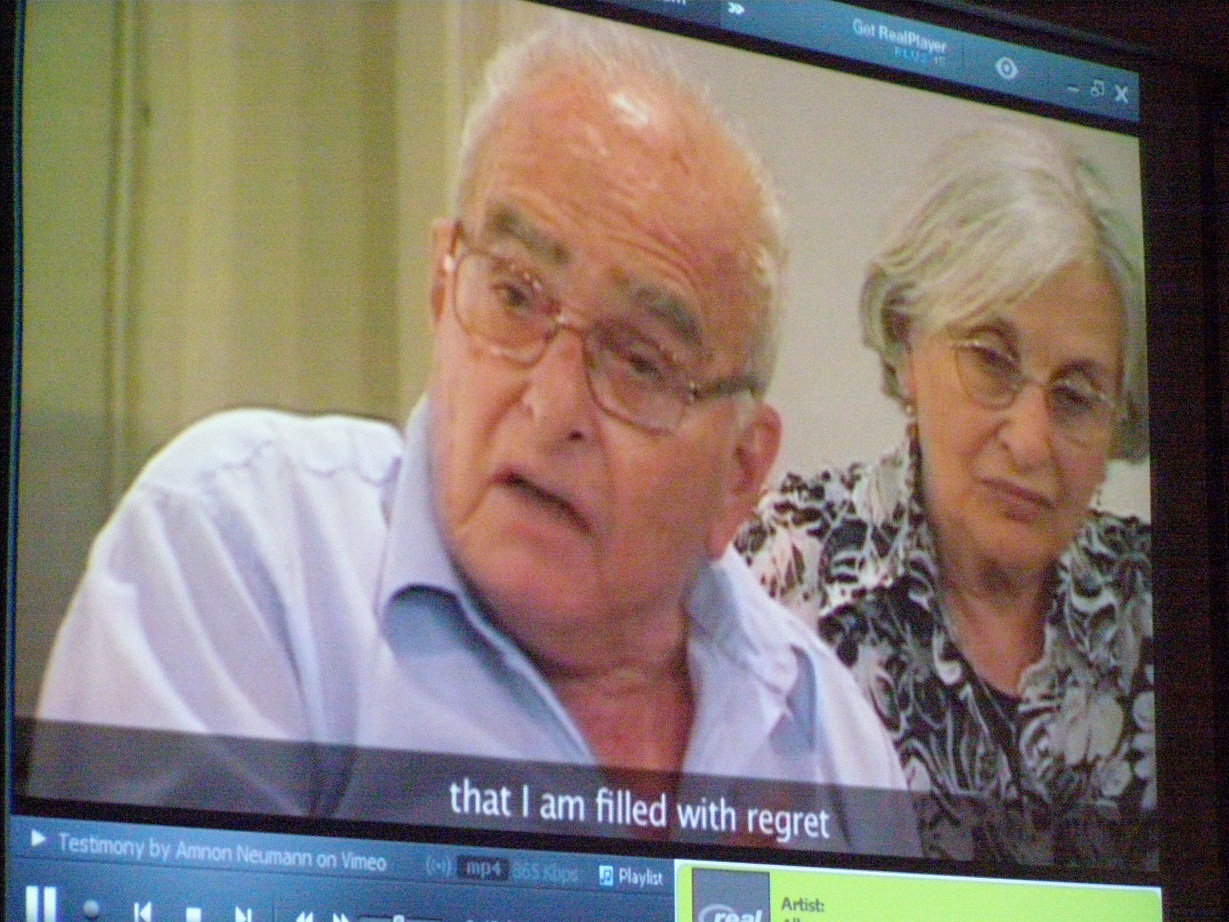
tel hai 2.1.2012
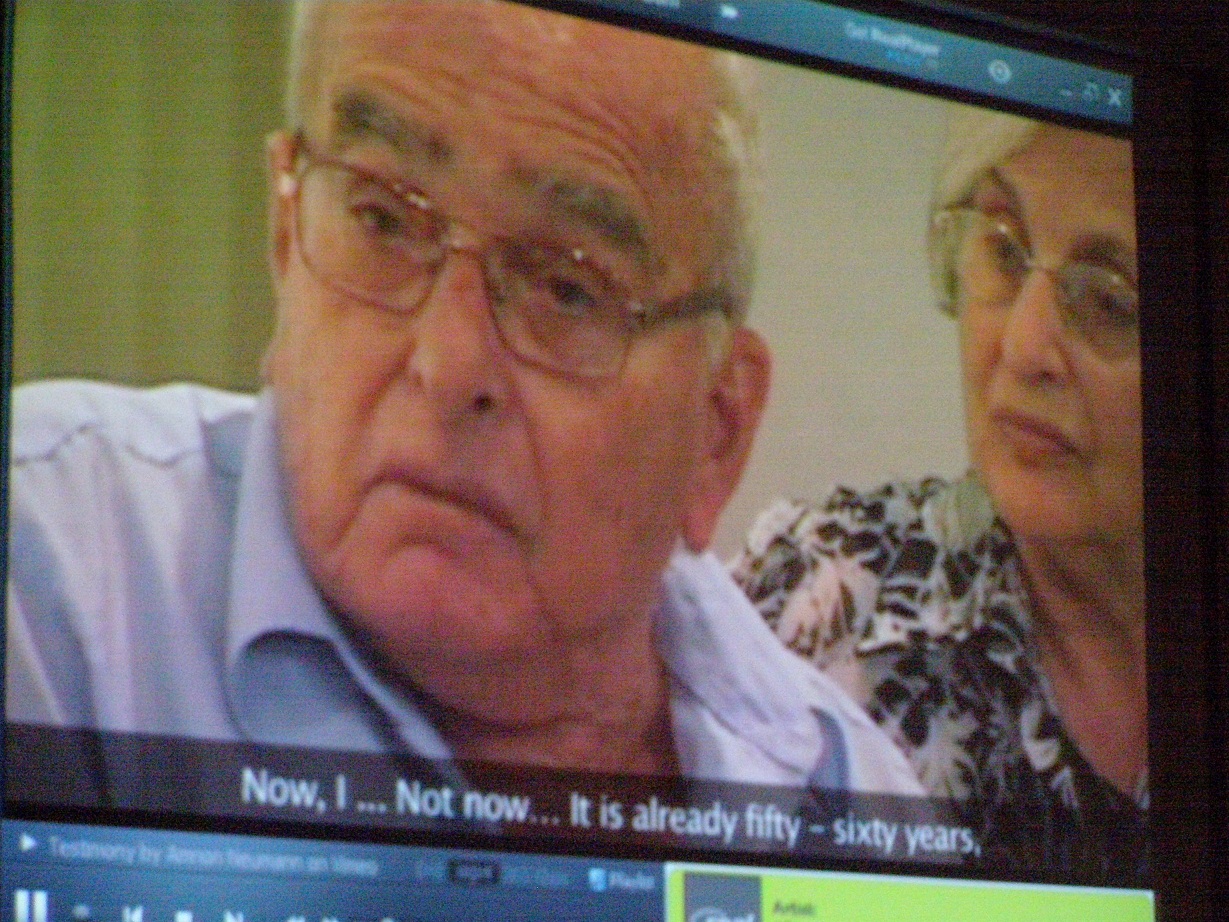
tel hai 2.1.2012
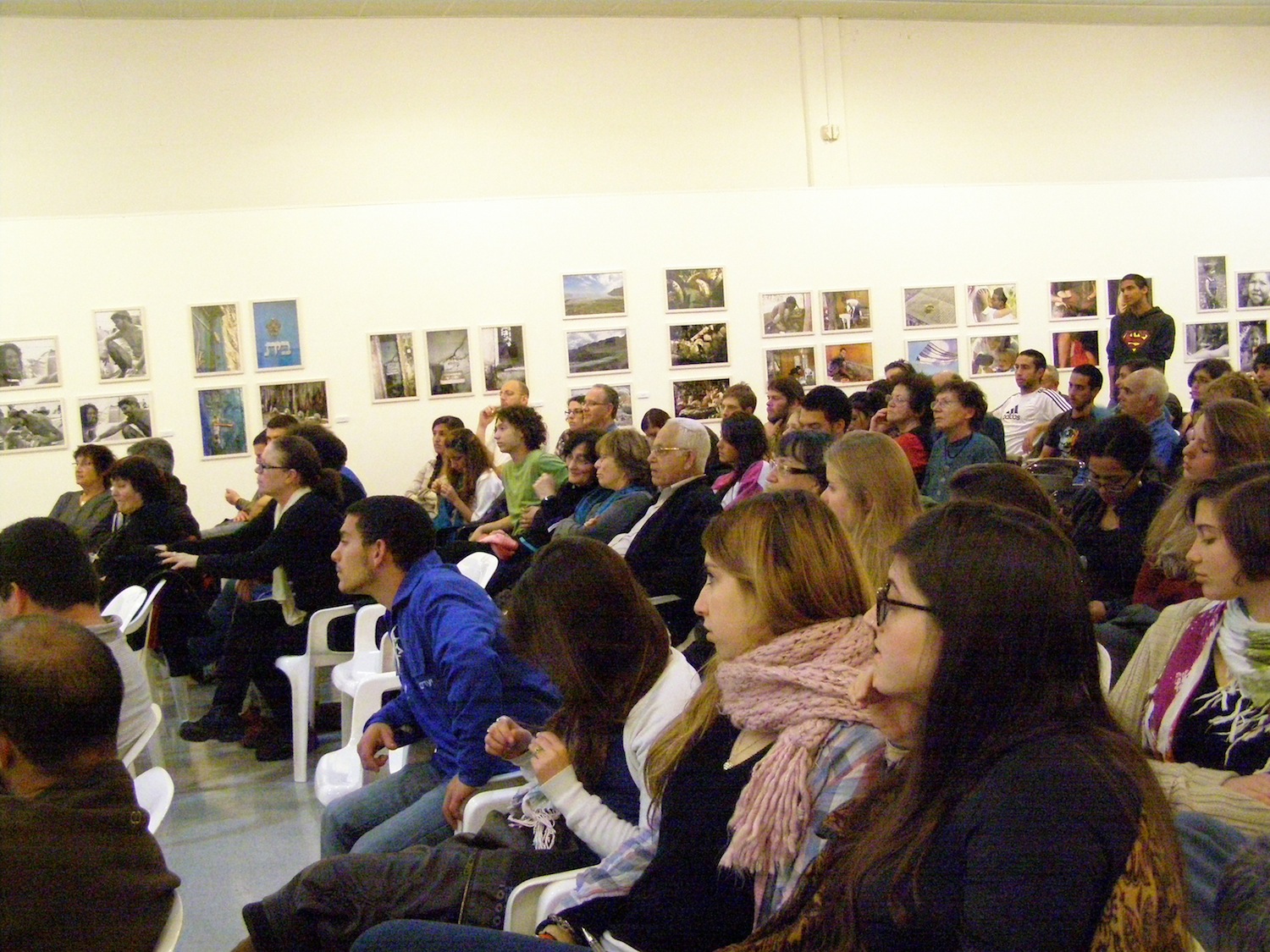
tel hai 2.1.2012
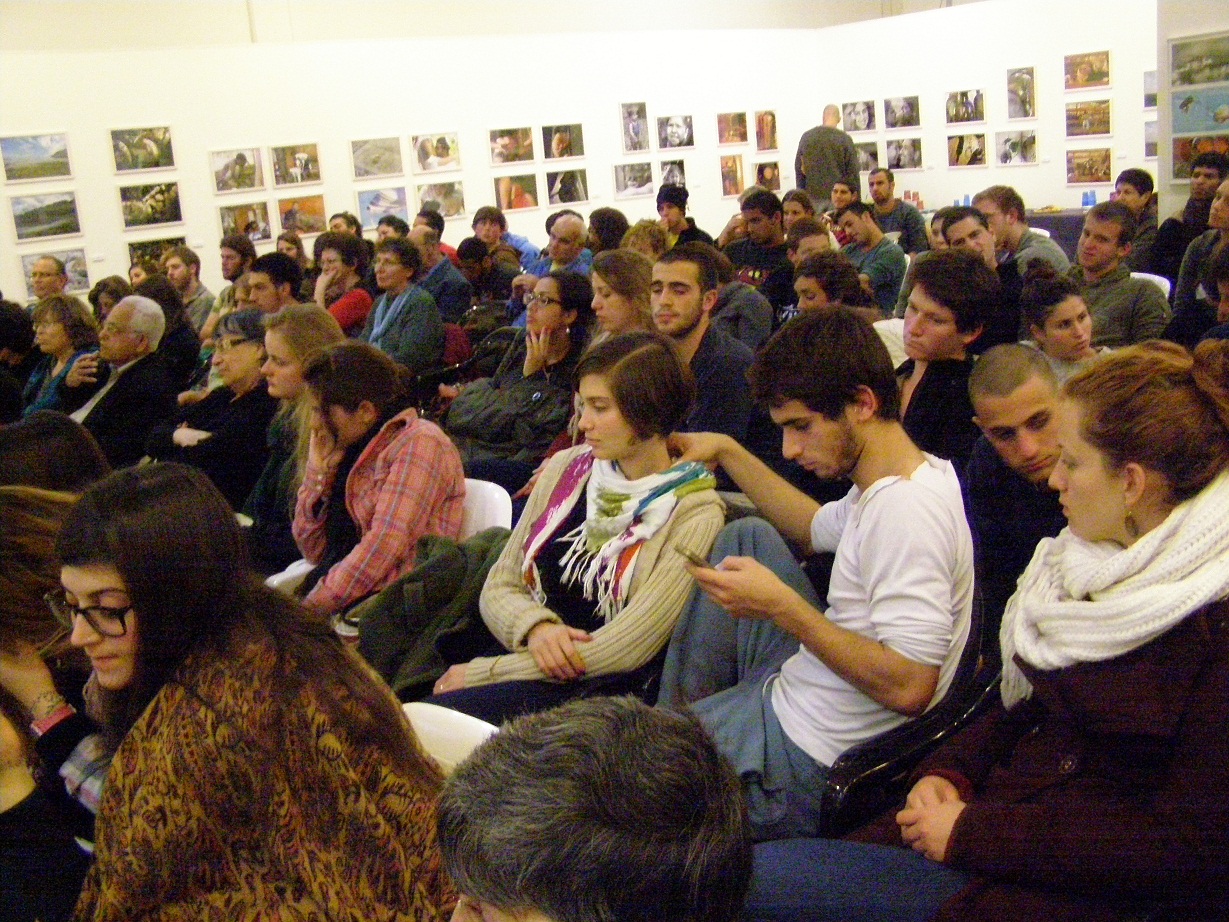
tel hai 2.1.2012
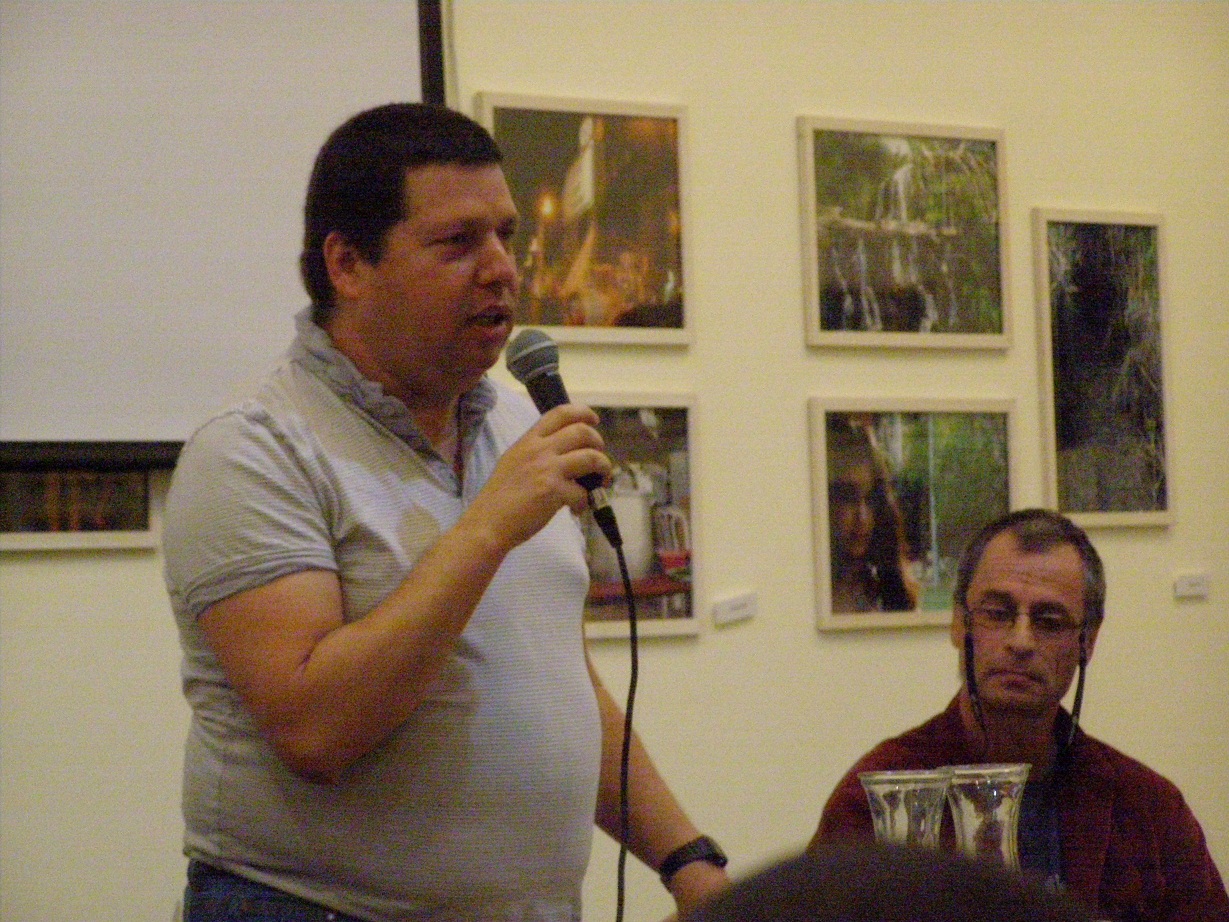
tel hai 2.1.2012
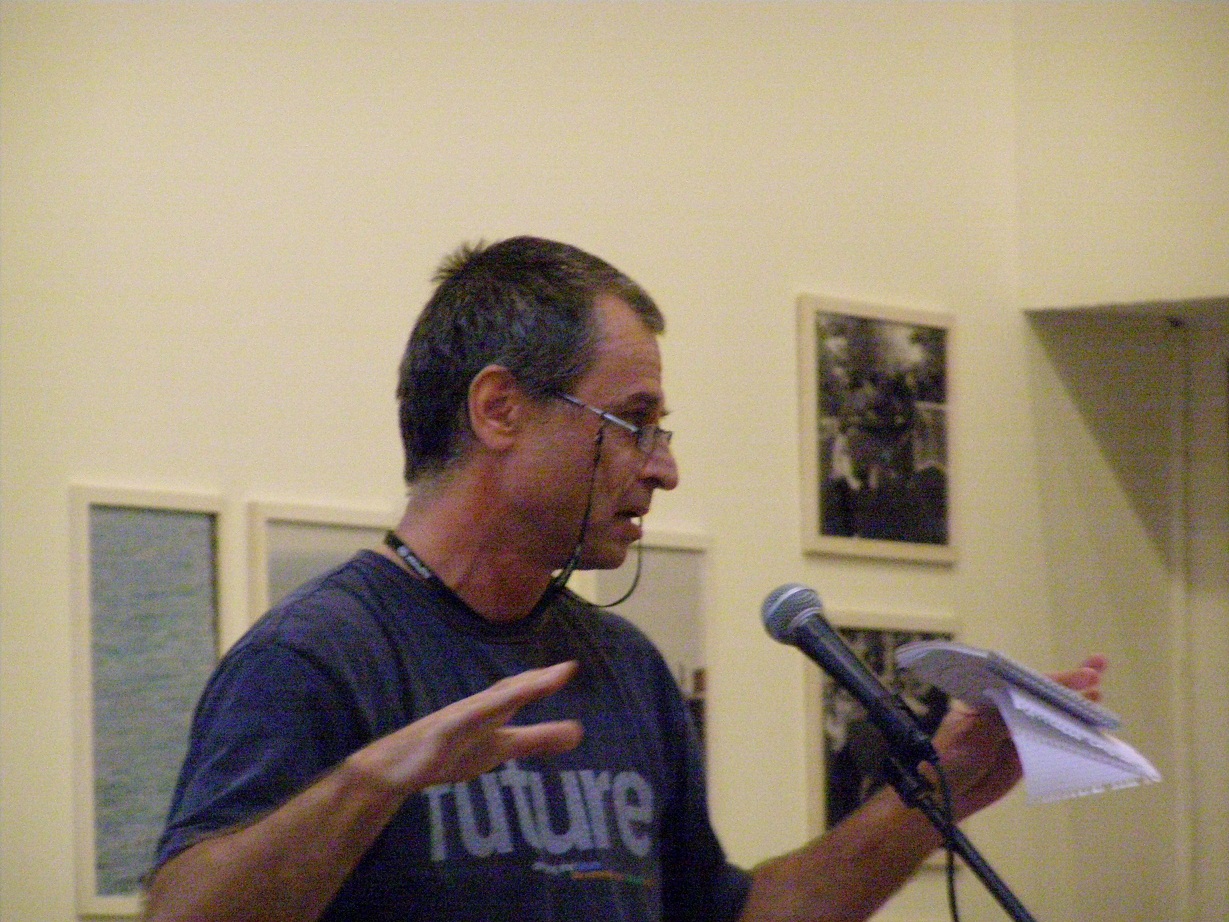
tel hai 2.1.2012
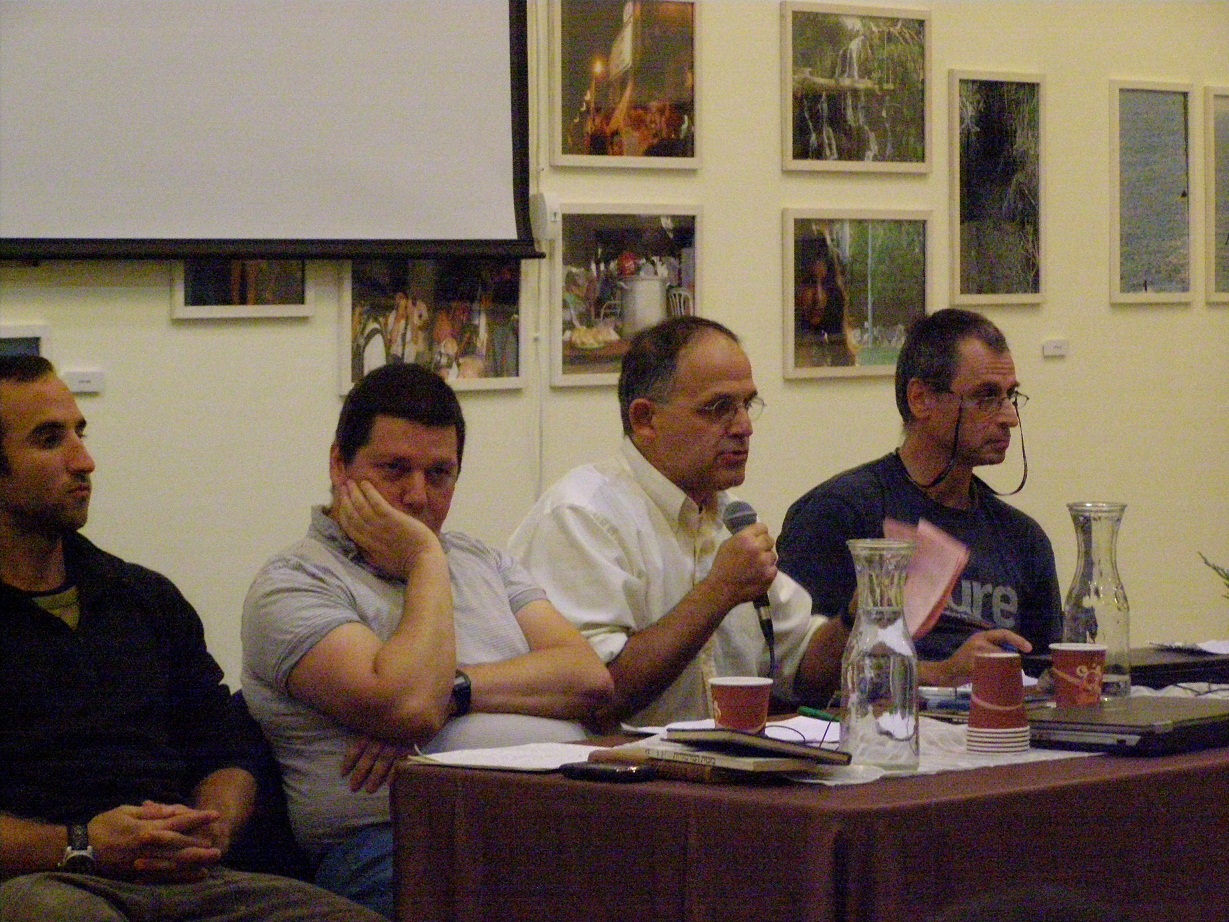
tel hai 2.1.2012
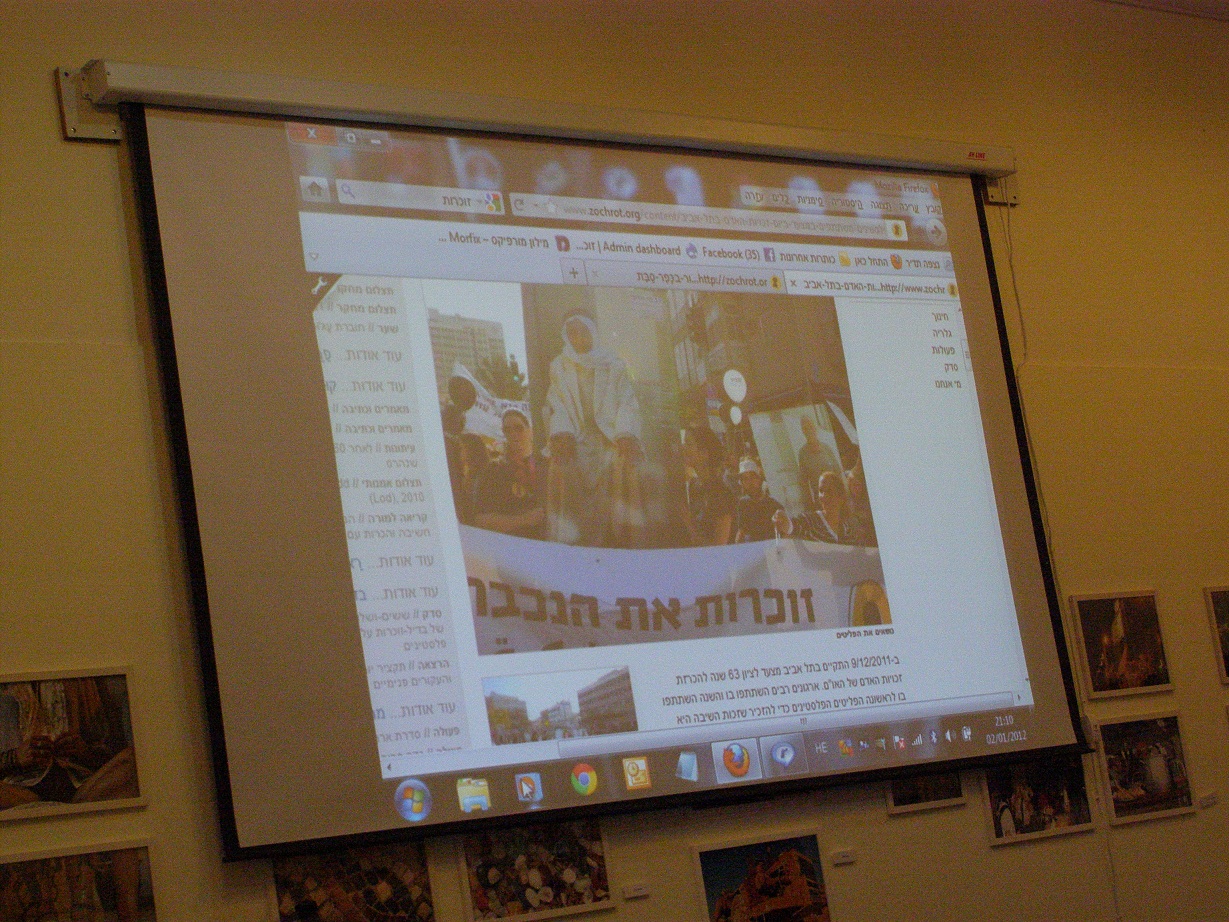
tel hai 2.1.2012


